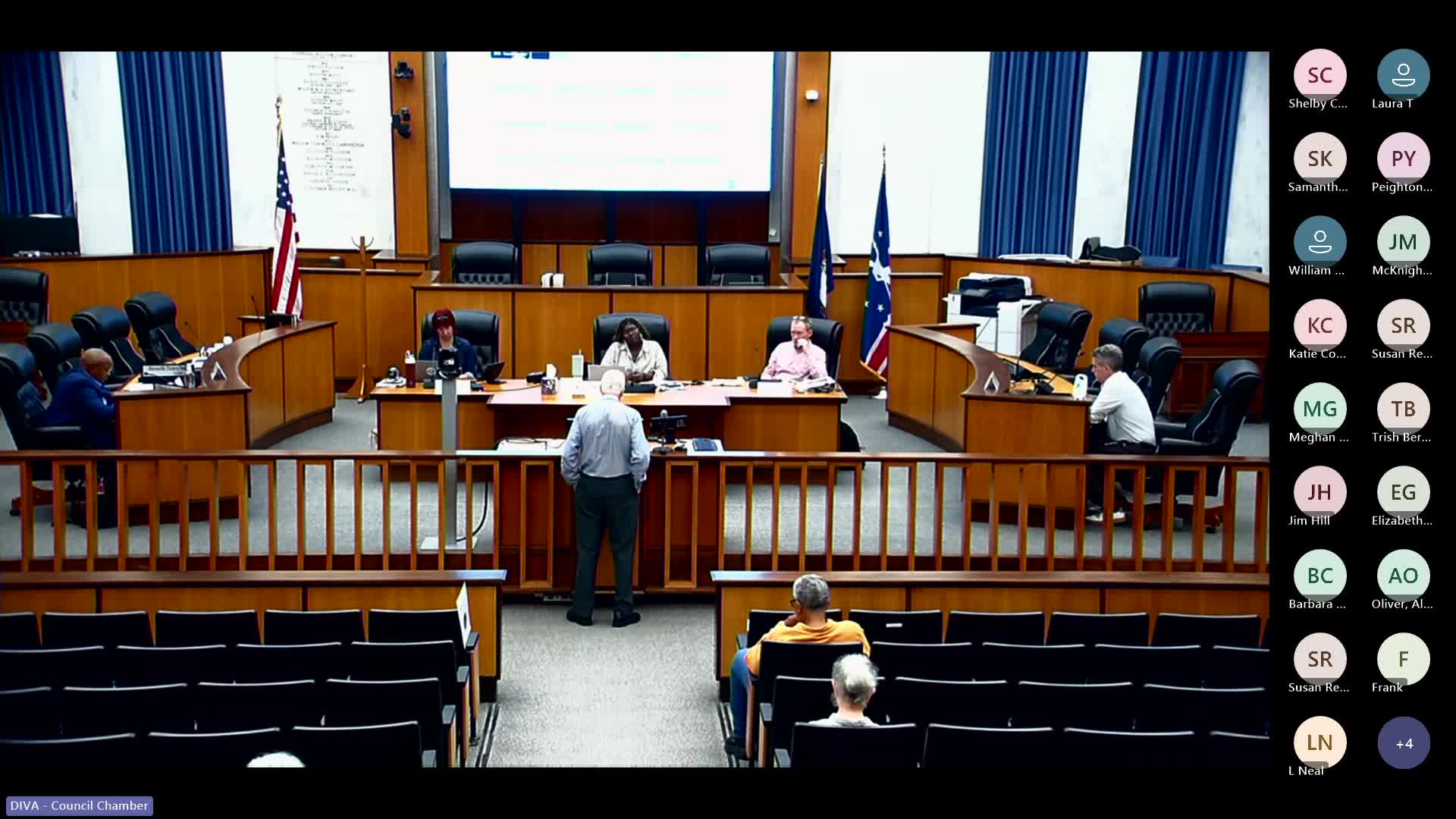Richmond Leaders Discuss Balancing Housing Development With Cultural Preservation
September 19, 2025 | Richmond City (Independent City), Virginia
This article was created by AI summarizing key points discussed. AI makes mistakes, so for full details and context, please refer to the video of the full meeting. Please report any errors so we can fix them. Report an error »

The recent Richmond City Planning Commission meeting highlighted critical discussions surrounding land stewardship, housing affordability, and the preservation of cultural heritage. As the city grapples with increasing housing demands, community members voiced concerns about the potential impact of development on both natural and historical resources.
One significant point raised was the need to protect land that has historical significance dating back to the founding of Richmond in 1737. A resident emphasized the importance of maintaining the park's natural buffer, which currently supports local wildlife and provides a serene environment for nearby residential neighborhoods. The speaker urged the commission to consider the ecological and cultural history of the area, particularly the historical use of the land by Indigenous tribes for hunting, and to seek their input on preservation efforts.
Greta Harris, president of the Better Housing Coalition, shared her perspective on the challenges of balancing development with affordability. She noted that while Richmond has seen an influx of college-educated professionals, this growth has often come at the expense of long-term residents, particularly those from lower-income communities of color. Harris highlighted the need for the commission to ensure that preservation efforts do not inadvertently hinder the delivery of affordable housing, citing a recent project in Jackson Ward that faced delays and increased costs due to mandated archaeological studies.
The discussion also touched on the rising costs of housing development, with Harris noting that the price of delivering affordable units has surged from around $175,000 to over $300,000 since the onset of the COVID-19 pandemic. This increase has created significant gaps in funding, making it more challenging to meet the housing needs of Richmond's diverse population.
Charles McFarland, a local developer with extensive experience in historic property redevelopment, contributed to the conversation by sharing insights from his work in the city. His comments underscored the importance of integrating historical preservation with modern development practices.
Overall, the meeting underscored the complexities of urban planning in Richmond, where the need for affordable housing must be balanced with the preservation of the city’s rich cultural and historical landscape. As the commission moves forward, the discussions from this meeting will likely influence future decisions regarding land use and community development, emphasizing the importance of inclusive and equitable growth.
One significant point raised was the need to protect land that has historical significance dating back to the founding of Richmond in 1737. A resident emphasized the importance of maintaining the park's natural buffer, which currently supports local wildlife and provides a serene environment for nearby residential neighborhoods. The speaker urged the commission to consider the ecological and cultural history of the area, particularly the historical use of the land by Indigenous tribes for hunting, and to seek their input on preservation efforts.
Greta Harris, president of the Better Housing Coalition, shared her perspective on the challenges of balancing development with affordability. She noted that while Richmond has seen an influx of college-educated professionals, this growth has often come at the expense of long-term residents, particularly those from lower-income communities of color. Harris highlighted the need for the commission to ensure that preservation efforts do not inadvertently hinder the delivery of affordable housing, citing a recent project in Jackson Ward that faced delays and increased costs due to mandated archaeological studies.
The discussion also touched on the rising costs of housing development, with Harris noting that the price of delivering affordable units has surged from around $175,000 to over $300,000 since the onset of the COVID-19 pandemic. This increase has created significant gaps in funding, making it more challenging to meet the housing needs of Richmond's diverse population.
Charles McFarland, a local developer with extensive experience in historic property redevelopment, contributed to the conversation by sharing insights from his work in the city. His comments underscored the importance of integrating historical preservation with modern development practices.
Overall, the meeting underscored the complexities of urban planning in Richmond, where the need for affordable housing must be balanced with the preservation of the city’s rich cultural and historical landscape. As the commission moves forward, the discussions from this meeting will likely influence future decisions regarding land use and community development, emphasizing the importance of inclusive and equitable growth.
View full meeting
This article is based on a recent meeting—watch the full video and explore the complete transcript for deeper insights into the discussion.
View full meeting
